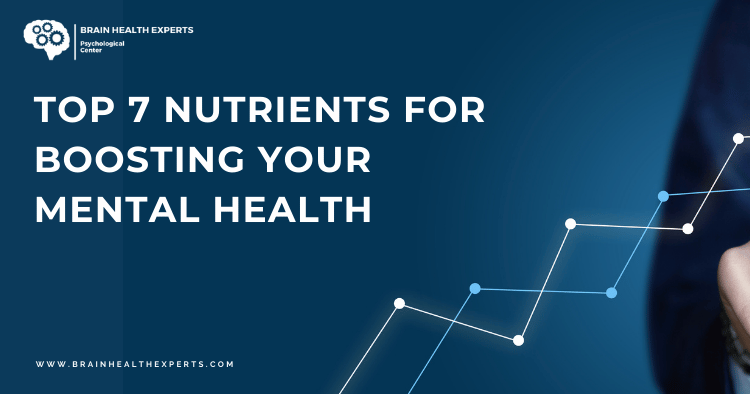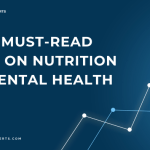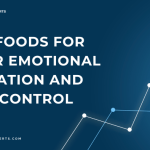Table of Contents
- Introduction
- 1. Omega-3 Fatty Acids
- 2. B Vitamins
- 3. Magnesium
- 4. Vitamin D
- 5. Antioxidants
- FAQs
- Conclusion
Introduction
As we navigate through the complexities of modern life, the connection between nutrition and mental health becomes increasingly evident. A growing body of research suggests that what we eat can significantly influence our mood, cognitive function, and overall mental well-being. In 2024, understanding which nutrients can benefit our mental health is crucial for anyone looking to enhance their emotional resilience and cognitive clarity. In this article, we’ll explore the top five nutrients that can help boost mental health, supported by scientific findings and practical dietary tips. Also look for our resources on 10 ways positive thinking boosts emotional well-being and 10 foods that boost your mental health and well-being.
Eating well is not just about physical health; it’s a powerful tool for mental resilience and clarity.
1. Omega-3 Fatty Acids
Omega-3 fatty acids are essential fats that play a critical role in brain health. Found in fatty fish like salmon, walnuts, flaxseeds, and chia seeds, these nutrients have been linked to a decrease in symptoms of depression and anxiety.
Why They Matter
Research indicates that omega-3s contribute to the fluidity of cell membranes in the brain, which is vital for optimal neurotransmitter function. A study published in The American Journal of Clinical Nutrition found that individuals who consumed higher amounts of omega-3s experienced fewer mood disorders.
“The brain is made up of fat, and omega-3 fatty acids are a key component of its structure.”
Recommended Intake
Experts recommend at least two servings of fatty fish per week or a daily supplement containing EPA and DHA, the most beneficial types of omega-3s.
| Food Sources | Omega-3 Content (per 100g) |
|---|---|
| Salmon | 2.26g |
| Walnuts | 9.08g |
| Chia Seeds | 17.83g |
| Flaxseeds | 22.81g |
Additional Resources
2. B Vitamins
The B vitamins, particularly B6, B12, and folate, are integral to maintaining mental health. They help in the production of neurotransmitters, which are essential for mood regulation.
Why They Matter
Deficiencies in these vitamins are linked to cognitive decline and mood disorders. A report from the Nutritional Neuroscience journal highlights that individuals with low levels of B12 are at a higher risk for depression.
“B vitamins are like the conductors of an orchestra, ensuring that the various elements of mood regulation work together harmoniously.”
Recommended Sources
B vitamins can be found in a variety of foods:
- B6: Chickpeas, bananas, potatoes, and poultry
- B12: Meat, dairy products, and fortified cereals
- Folate: Leafy greens, legumes, and oranges
Quick Tip
Consider a B-complex supplement if you follow a vegan or vegetarian diet, as B12 is primarily found in animal products.
Additional Resources
3. Magnesium
Magnesium is a mineral that plays a pivotal role in brain function and mood regulation. It helps to regulate neurotransmitters and can have a calming effect on the nervous system.
Why They Matter
Studies suggest that adequate magnesium intake can reduce the risk of anxiety and depression. A meta-analysis in the journal Nutrients found a strong correlation between low magnesium levels and increased levels of anxiety.
“Magnesium is the unsung hero of mental health, quietly supporting a balanced mood and calm mind.”
Recommended Intake
The recommended dietary allowance (RDA) for magnesium varies by age and gender, but adults generally require 310-420 mg per day.
| Magnesium-Rich Foods | Magnesium Content (per 100g) |
|---|---|
| Spinach | 79mg |
| Almonds | 268mg |
| Black Beans | 70mg |
| Avocado | 29mg |
Additional Resources
4. Vitamin D
Vitamin D, often dubbed the “sunshine vitamin,” is crucial for mental health. It helps regulate mood and ward off depression.
Why They Matter
Research has shown that individuals with low levels of vitamin D are more likely to experience depression. A study published in Psychosomatic Medicine found a significant link between vitamin D deficiency and depressive symptoms.
“Just like the sun can brighten a room, vitamin D can illuminate our mental health.”
Recommended Sources
Vitamin D can be obtained through:
- Sunlight exposure
- Fatty fish (like salmon and mackerel)
- Fortified foods (like milk and cereals)
Quick Tip
Consider a vitamin D supplement, especially in winter months or if you live in areas with limited sunlight.
Additional Resources
5. Antioxidants
Antioxidants, such as vitamins C and E, help combat oxidative stress in the brain, which can negatively impact mental health.
Why They Matter
Oxidative stress is linked to various mental health disorders, including depression and anxiety. A study in Frontiers in Aging Neuroscience suggests that a diet rich in antioxidants can help protect brain function as we age.
“Antioxidants are like shields for the brain, protecting it from the damaging effects of stress and aging.”
Recommended Sources
Incorporate a variety of colorful fruits and vegetables into your diet:
- Vitamin C: Oranges, strawberries, bell peppers
- Vitamin E: Nuts, seeds, and green leafy vegetables
Additional Resources
FAQs
Q1: Can I get these nutrients from supplements instead of food?
While supplements can help, it’s best to obtain these nutrients from whole foods for optimal absorption and additional health benefits.
Q2: How long does it take to see improvements in mental health after changing my diet?
Improvements can vary based on individual circumstances, but many people report feeling better within a few weeks of dietary changes.
Q3: Are there any side effects associated with taking these nutrients?
While most nutrients are safe in recommended amounts, excessive intake of supplements can lead to adverse effects. Always consult a healthcare provider before starting any new supplement regimen.
Conclusion
In 2024, prioritizing nutrient-rich foods can be a powerful strategy for enhancing mental health. Incorporating omega-3 fatty acids, B vitamins, magnesium, vitamin D, and antioxidants into your diet can lead to improved mood, cognitive function, and overall well-being. Remember, a balanced diet paired with a healthy lifestyle can significantly impact your mental health journey. So, let’s make 2024 the year of nourishing our minds and bodies! For more insights, check out our article on 10 effective strategies to enhance workplace mental health.





